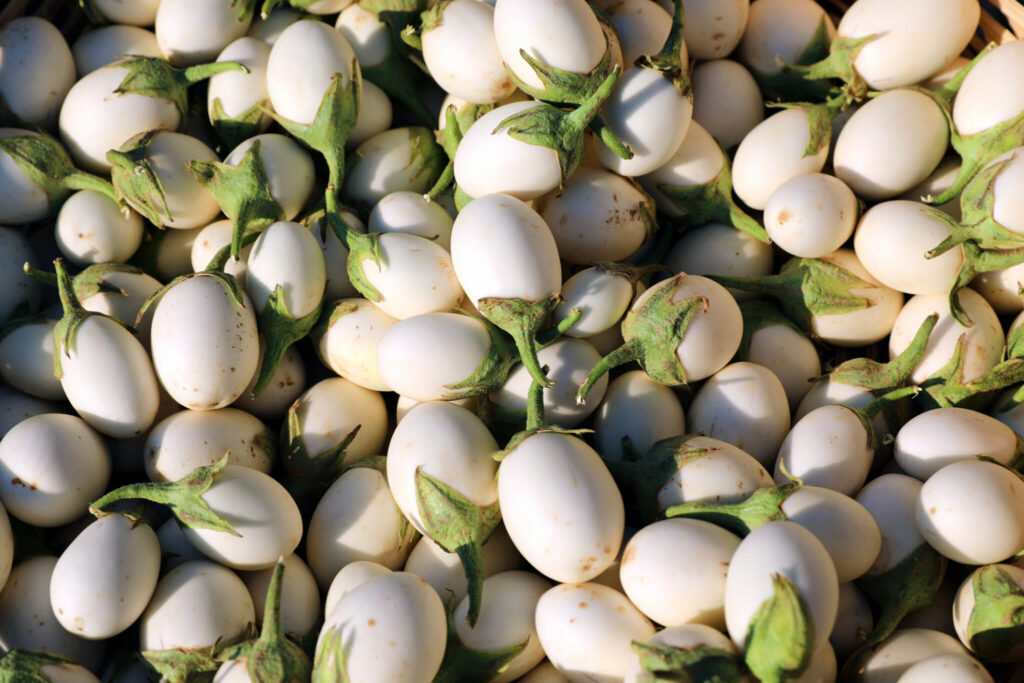A Look Back at the History
Eggplants were first documented in ancient Chinese agriculture texts as far back as the year 544. But it wasn’t until the 1700s that European farmers coined the name “eggplant.” At the time, the varieties they were growing were small, white, and round—eerily similar to goose or duck eggs. The name stuck, even as the appearance of the fruit evolved into the large purple version we know today.

White vs. Purple: What’s the Difference?
While the purple variety is more commonly seen in grocery stores, white eggplants—also known as white aubergines—are still grown and enjoyed around the world. So what sets them apart?
Appearance and Texture
White eggplants tend to have thicker skin, which is why many cooks prefer to peel them before cooking. In contrast, the thinner skin on purple eggplants is often left intact and softens during cooking.
In terms of shape, white eggplants are often smaller and more oval-shaped, but they can grow long and slender as well. Likewise, purple varieties aren’t always long—they can be round or teardrop-shaped, too.
Flavor and Cooking Tips
All eggplant varieties have a slightly bitter flavor and a spongy texture when raw. But when cooked, they become soft and absorb flavors from surrounding ingredients beautifully. That’s why eggplant works so well in everything from Mediterranean dishes to Asian stir-fries.
Specialty Produce describes the flavor of white eggplant as “fruity and mild” with a warm, mellow tone when cooked. No matter the color, eggplant can be grilled, roasted, sautéed, baked, or fried. Just be careful not to overcook it, or the texture may become too mushy.
Where to Find White Eggplants
While white eggplants aren’t always easy to find in standard supermarkets, they are available in specialty grocery stores and farmers’ markets. Home gardeners can even grow them from seeds, often available through online catalogs.
The Eggplant’s Name Makes Sense After All
Thanks to that viral photo, the oddly fitting name “eggplant” finally clicks. What once seemed like a strange choice now feels quite logical—especially when you see the small, white, egg-like fruit that started it all.

Have you ever seen an eggplant that actually looked like an egg? Let us know in the comments—we’d love to hear your thoughts!

